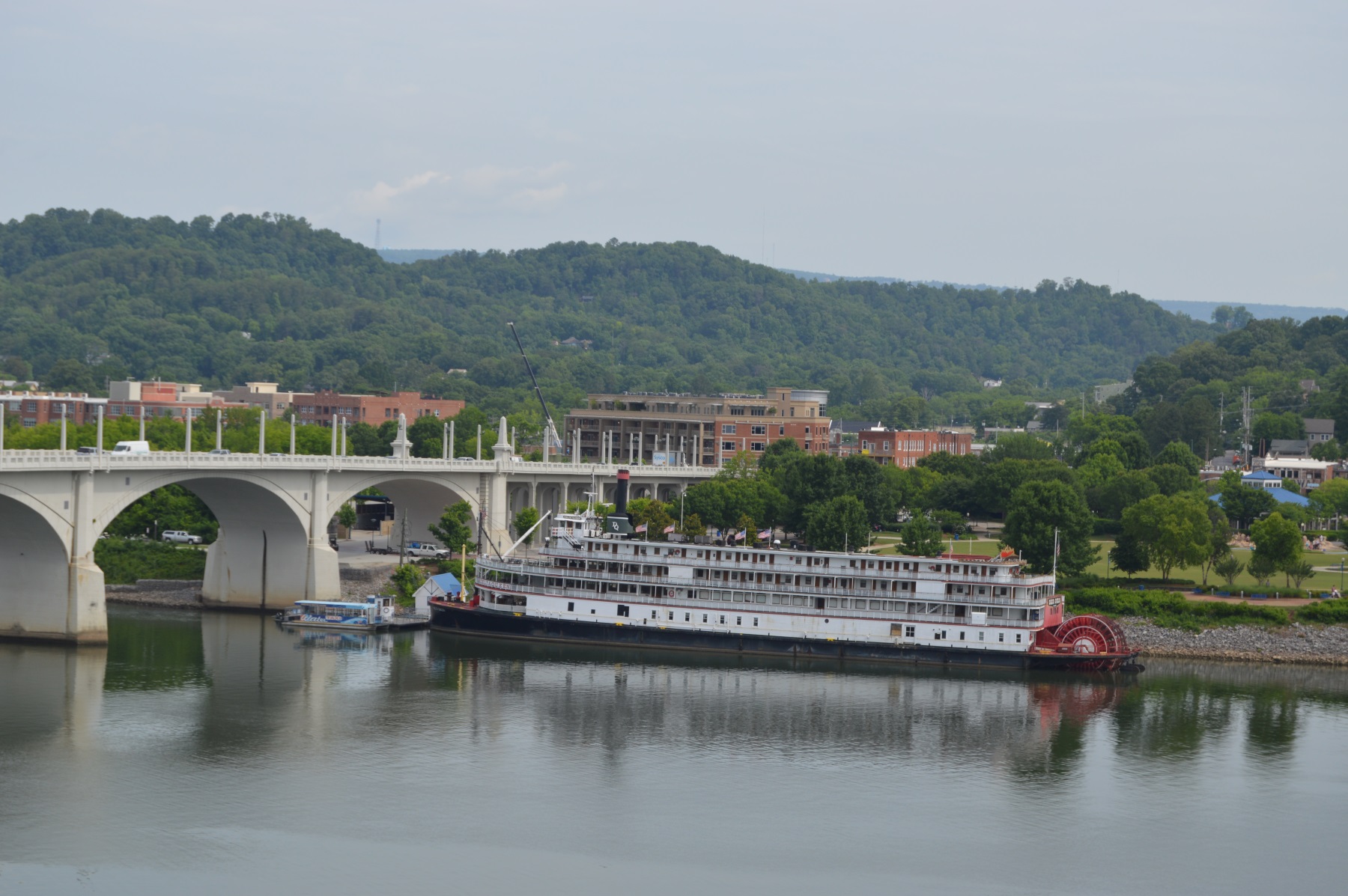Georgia Lawmakers Revisit Tennessee Border Dispute In Bid For Water

Some lawmakers here say Georgia should be able to use the water in the Tennessee River because if the state line were in the right place, some of that river would be in Georgia.
Sesamehoneytart / Wikimedia Commons
Georgia lawmakers say the state’s northern border with Tennessee and North Carolina is in the wrong place, and they want to explore moving it. It’s a long-running dispute that’s come up a number of times over the years in the state Legislature, and it’s all about access to water.
Georgia has fought with other states — Florida and Alabama — for decades over the rivers those states share.
Alabama and Florida say Georgia uses too much of it. Florida has taken Georgia to the U.S. Supreme Court. Arguments in that case were in January, and the court’s decision will come later this year.
Meanwhile, there’s another big river just outside of Georgia’s borders: The Tennessee River. It’s just over the state line, in Tennessee. In fact, some creeks that start in Georgia flow north and feed into the Tennessee River.
Some lawmakers here say Georgia should be able to use the water in the Tennessee because if the state line were in the right place, some of that river would be in Georgia.
Getting that water would resolve Georgia’s other water woes, says state Rep. Marc Morris, R-Cumming, who introduced a resolution that would establish a committee to explore moving the border.
“It would nearly solve the water problems, certainly solve metro Atlanta’s,” Morris said in a legislative committee hearing in February. “It would nearly solve the problems between the water wars in Alabama and Florida.”
While Atlanta is a big water user, per capita use here has dropped over the past couple years.
And what about all those people who live in the disputed area, who feel they live in Tennessee?
“The good news is, there’s 51 miles there, and I think we can be very flexible on 49 1/2 of them,” Morris said. “We just simply need access to the river. Not to take anything that’s not already ours, but to reintroduce the water back into Georgia that has flown into that river.”
“It’s a nonstarter,” said Gil Rogers, director for the Georgia and Alabama offices of the Southern Environmental Law Center.
“We need to be thinking seriously about future water supply for metro Atlanta, but that’s not an alternative that’s going to go anywhere,” Rogers said. “The state of Tennessee wouldn’t want that, and we’d be tied up in litigation for years, opening another interstate water conflict.”
When the state Legislature looked at this idea about a decade ago, the mayor of Chattanooga sent a truck full of bottled water to the Georgia Capitol.







